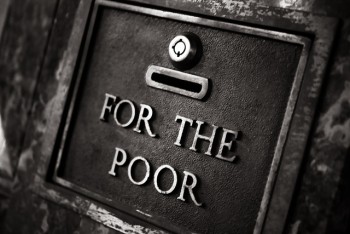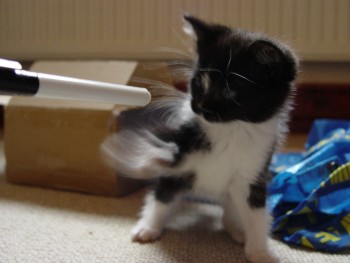It has become quite trendy in recent years to donate to charity as a Christmas gift: you give the would-be recipient a card or something telling them you’ve bought half a donkey in Ethiopia, or some such. (They never tell us whether it’s the right half or the left half … the top half or the bottom half … ). Now, it’s even become trendy to announce that you’re donating to charity instead of sending Christmas cards.
I’m going to go out on a limb here, undoubtedly making myself unpopular, by saying I really don’t like these trends at all. Why on earth not? Let’s take them one at a time.
“I donated to this charity instead of giving you a gift!”
“Oh, um, er, that’s good, I suppose. What’s the charity do?”
“Distributes half-donkeys in Ethiopia so that families can become self-sufficient.”
“Oh, okay. That’s nice. Um, thank you.”
What’s wrong with this picture? Lots. Perhaps the recipient’s never heard of this charity, doesn’t necessarily care about this cause, doesn’t necessarily believe that the charity does a good job at what it says it’s doing, doesn’t necessarily believe that the charity’s stated goal (distributing half-donkeys) will achieve its stated aim (making families self-sufficient), and possibly other problems.
Perhaps the recipient has a charity they really believe in, that they wish you’d have donated to instead – maybe one that distributes half-pigs to families in Kenya. That may sound like much the same thing to you, and even be about the same price point, but for all you know, the recipient knows that the Kenya one turns 90% of donations into half-pigs, versus the Ethiopia one turning 50% of donations into half-donkeys. Or perhaps the Kenya one is one the recipient actually saw in action on a visit to Africa, and was moved by. Or perhaps they’d rather if you donated to the animal shelter they volunteer at once a week. Or maybe their relative has a really rare condition, and they’d like to raise money for research into that disease.
Yet you’ve put them on the spot – they’re supposed to act thrilled that you’ve donated to this charity that you’ve chosen and you believe in – and generally, we’re socialized to feel that we should act even more thrilled about this misplaced charity donation than we should about a badly chosen ordinary gift (the horrible sweater, the book you’ll never read), because after all, it’s for a good cause! If you’re not happy about helping other people – especially at Christmas – then you’re a horrible person!
But if it’s supposed to be a gift for somebody, it needs to mean something to them. What charities do they want to support? Find out.
And part number 2: “We’re not sending any Christmas cards this year – instead we’re making a donation to charity for the amount we’re saving!”
First of all, this just smacks so much of hipsterism: it strikes me that lots of people don’t see a point in Christmas cards and don’t want to do them, so they spout this line instead so they don’t have to send cards and don’t have to feel guilty, either.
I think I’ll always be biased against this one in this way because one of the first places I ran into it was in my WI, where we would just hand the cards to each other. Postage adds up, sure, but if you take that out of the equation: I just bought a pack of 20 cards last week for £1.00, and there were less than 40 members when this line started being bandied about.
But mostly, if you want to make a donation, just make a donation. Don’t make a grand song and dance about it.
In our local paper recently, there was a story about a bride and groom who got married after courting for 13 years and living together for 3, so they already have 2 of everything. They asked for donations to charity in lieu of wedding presents, and their guests happily obliged: £605 was raised, enough for the local charity they chose to buy a wheelchair for a girl who needs one. The couple’s delighted that they were able to help this charity that means so much to them, that means so much to a friend of the bride. The guests, I’m sure, will likewise be thrilled that they were able to contribute to something quite tangible and meaningful for the recipients.
That story struck me as how to do gift giving for charity right.

Who knows what she’ll go on to accomplish now?
Image by Tom Thai. CC 2.0.




